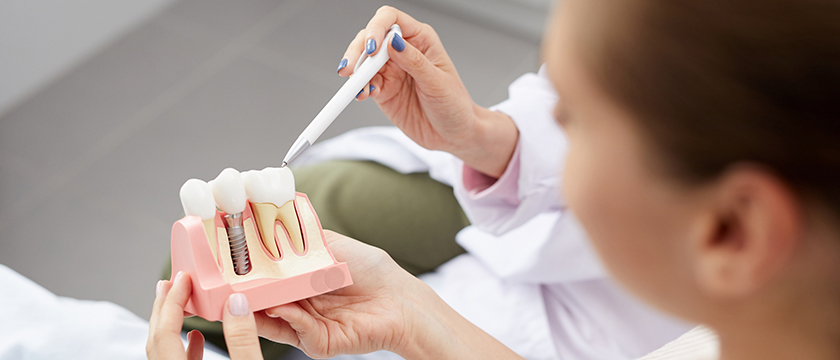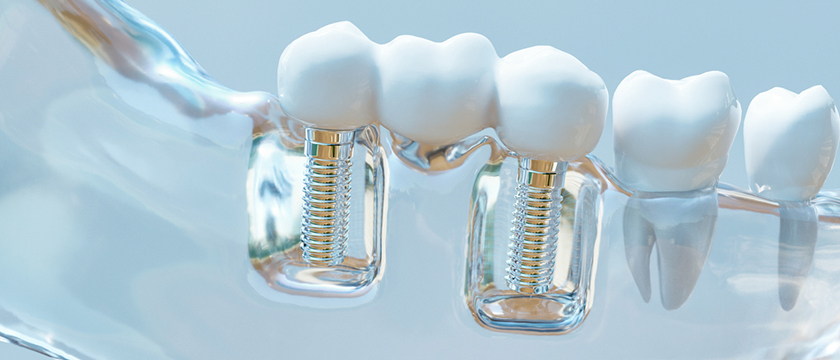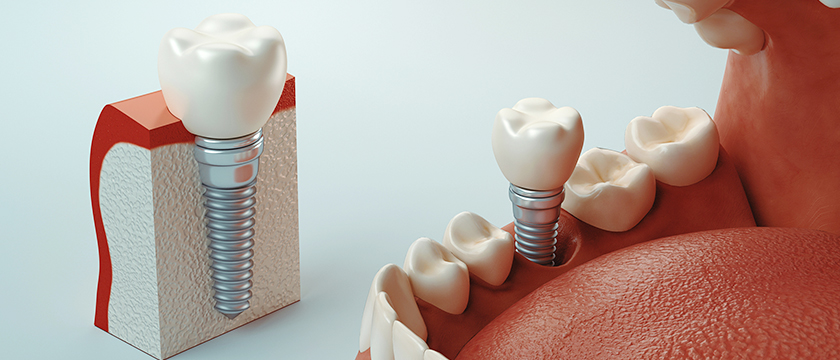Blog
 05 Mar 2024
05 Mar 2024
The Remarkable Benefits of Full Mouth Dental Implants: Your Basic Guide
Imagine regaining the ability to enjoy your favourite foods without hesitation. Picture a renewed confidence in your smile and the assurance of having healthy, beautiful, and permanently affixed teeth. This isn’t just a dream—it’s a reality made possible through full mouth dental implants. Embark on a journey with us as we delve into the essentials of full plate or full mouth dental implants, a transformative solution for those seeking to reclaim their smile and oral health.
 05 Nov 2023
05 Nov 2023
Dental Implants: Guide to Aftercare and Maintenance
Getting dental implants to replace missing teeth is one of the best things you can do for your oral health and quality of life. Implants will help you speak, chew, and smile like you used to and help keep your jawbone from degrading.
 05 Jun 2023
05 Jun 2023
How Dental Implants Enhance Your Face Shape
Dental implants offer many quality-of-life benefits, but did you know they can also change the shape of your face? Depending on which teeth you lost and how long they have been missing, you could come out of dental implant surgery looking like a whole new you. Use this guide to learn more about how getting dental implants in Mississauga can alter your appearance and to get the answers to some questions that may be on your mind regarding the procedure’s effects.
 10 Mar 2023
10 Mar 2023
15 Things You Didn’t Know About Dental Implants
If you have been thinking about getting dental implants, you have probably done a lot of reading on the subject. While there is plenty of information available online regarding things like tooth implant costs and the best materials to choose from, what about the lesser-known details? Here are the answers to 15 questions about tooth implants that you may have been wondering about.
 17 Oct 2021
17 Oct 2021
Who Should Get a Dental Implant?
Dental implants are artificial teeth anchored to the jawbone with a titanium screw. They are used to replace one or more missing teeth. Some people also use implants to replace all their teeth that may have been lost due to decay or injury.
 10 Jul 2021
10 Jul 2021
A Complete Guide to Dental Implants
Tooth loss is a common dental condition seen among patients. Losing a tooth to injury, gum disease, or decay can impact your facial appearance and compromise your ability to speak and chew normally. Many people who have lost a tooth worry about it constantly and become self-conscious, afraid to let anyone see the gap in their smile.
Dental implants can be used to replace missing teeth and correct these problems. Many patients report that getting dental implants has had a significant impact on their quality of life. Some forget that they were ever missing a tooth in the first place. Our guide will teach you everything you need to know about dental implants, including what they do, how they are placed, and why they are the right choice to replace your missing tooth.
